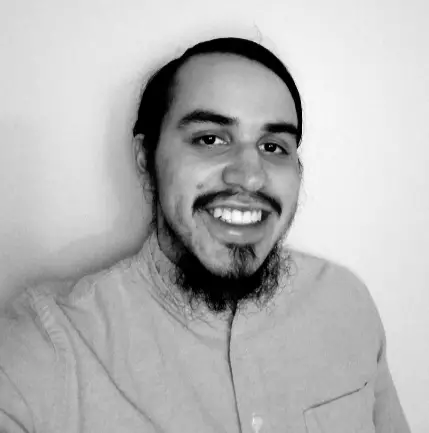The media is often referred to as the fourth branch of government due to its massive potential influence on how the country views itself and the world around it. This sentiment, perhaps, rings truer today than it ever has as a result of the internet and its ability to provide huge amounts of information instantaneously.
There are hundreds of different outlets for news and information, making it easy to get lost in what’s true or false. Honest journalists, then, are critically needed to provide proper and objective insight into world events.
Meet Stepha Poulin, the web editor of Bowling Green State University’s media platform, BG Falcon Media, and an aspiring journalist. Poulin is constantly working, writing two to three news articles a week. Her work is inspired, honest and she is unafraid to discuss uncomfortable and ignored topics.
As part of a new movement in journalism to strive away from potentially corrupt corporatism into independence, Poulin is ultimately contributing to the betterment of the country.
Xavier Reyna: I read that at the university you previously attended, Alderson Broaddus University, you were the only journalism major of your class, which was anywhere between 200 – 300 students. What drew you to journalism?
Stepha Poulin: The fact that I have a lot of different interests and I wanted to choose a major that let me explore different topics. So, I think with journalism, you’re doing one profession but you also get to learn about a bunch of different things.
XR: Was there a particular story or an event you came across that made you think, “I want to help fix this. I want to help get this story out there”?
SP: I haven’t had a moment where I’m thinking, “this story needs to be heard,” but I definitely think there are topics that I gravitate to more. For example, I wrote an article on a research paper that was put out by our psychology department about spiritual well-being.
So, I try to go towards things that would interest myself but also still hold those “news” values that I think other readers would want to read about.
XR: I read that you won a Touchstone Award in 2017 for a piece you did “exposing the dark web.” What was your writing and thought process for a piece like that? How did you handle the pressure of shedding light on such an intense, multi-layered subject like the dark web?
SP: For myself, since I’ve actually been on the dark web, it wasn’t too bad. The piece was mostly about how even though there might be weird, scary things on the dark web, it’s really not all bad. It’s a huge thing, so it would be completely irrational to think the dark web is filled with murderers.
XR: Did you feel validated once you received that award for your work?
SP: It made me realize there’s more to do with this. It definitely validated my confidence and made me want to pursue this, for sure. Going in, everyone has doubts about their talents, but I think getting an award really inspired me to do more.
XR: You recently wrote a short piece discussing the ivory trade ban in Hong Kong, the largest ivory market in the world, and how there is still the possibility for underground markets to emerge despite this. With so many other negative things going on in the world, the ivory trade often gets overlooked.
SP: Yeah, especially because it’s so far away we don’t necessarily think about those things. There are definitely even people here who partake in similar things like trophy hunting. It’s hard to weed through what bad news you want to talk about when there are so many bad things.

XR: You closed that article by saying, “It’s time to think about conservation proactively, rather than enacting solutions at near extinction for species like the elephant.” I thought that was a powerful sentiment. Be active, not passive. Don’t wait for the extinction of a species to start a movement.
SP: Definitely, a lot of what I hear in the news is because no one acted when things were starting to go bad or made sure the system wouldn’t get to that point anyway. Rather than saying “get on board with this movement,” it’s more hopeful to say “don’t let things get this bad to begin with.”
XR: In the past, you’ve discussed other serious events like President Trump’s travel ban and why the recent “blackout” effort made at this year’s Golden Globe awards to raise awareness against sexual harassment wasn’t enough to spark a change. How important is it for you to start and get these discussions about serious, yet controversial subjects out there?
SP: The reason I gravitate towards those things is because journalists, and even opinion columnists, avoid touchy subjects. It’s way easier to make a list of “the most fun places to go to for spring break” than it is to talk about a topic that generates discussion.
Granted, running the opinion section of the newspaper, I generally don’t have to use sources in articles like that. But I still think it lets me employ different tactics to talk about things that I can’t necessarily say in a hard-news article. It also gives me ideas for articles with sources; I might be able to explore the other side of a topic and look at it objectively because of that.
I think it’s really fun to challenge my own beliefs, too. Even if I believe in what I believe completely, it’s important to hear the other side.
XR: You have a lot of different responsibilities and positions at your university’s media program, including Columnist, Forum Editor and Web Editor, among other things. You also release anywhere between 2 – 3 articles in a week. How do you put maximum effort into each task while also maintaining a strong level of journalistic integrity?
SP: I play it week by week. Last semester I was still trying to get columnists, so I was writing a lot more. Whenever the workload does get high, it’s just about making sure you get things done in a timely manner.
As soon as I’m about to start a piece, if it’s hard news, I make sure I email people fast and get the interviews set up. Also, just knowing my schedule well and knowing when too much is too much and taking a break.
XR: How do you handle the inherent amount of stress that must come with each task?
SP: I write creatively; I’m a creative writing minor. It’s kind of weird but I relieve stress by writing more. I read, spend a lot of time on the internet, obviously, and just sitting down and doing nothing feels good. Sometimes, I feel so overstimulated with talking to so many people that I like to stay home and bask in the nothingness.
XR: In a profile done on you by Jacob Clary of BGSU, you mentioned that you write poetry and I wanted to dive into that a little bit more. Who are some of your biggest influences?
SP: Rather than actual poets, I draw a lot of my influence from musical artists. I listen to a lot of jazz artists like “Snarky Puppy” and prog-metal artists like “Yes” and “Rush.”
XR: Is your poetry more of an exercise in personal expression or social commentary?
SP: I’d say both. I draw a lot from my own experiences, but I mix in some other influences too. I’ve written poems on global warming and things like that, but I struggle to be metaphorical and I think that’s because I’m a journalist. I’m really literal.
XR: Do you plan on publishing your poems one day?
SP: I think I’m going to, I’m getting more confident in my writing. Looking back, I’ve seen my writing and tone change, so I’m definitely getting to the point where I want to start submitting things.
XR: I think it’s really important for people, not just writers, to engage in some form of artistic expression, whether it’s poetry, painting or music. Activating that creative part of your brain just unlocks new and different perspectives on so many other things in life.
SP: Definitely, I think one of the main reasons I actually started liking math was because of playing an instrument and being involved in music. It exercises the same part of your brain and it’s like doing some things without doing the math.
XR: What do you think about the state of journalism and media today? When publications continually get referred to as “fake news,” there seems to be a general distrust of certain news outlets that turns a lot of people off.
SP: Personally, I’m hopeful because I do recognize why those claims are made. To me, as a young journalist, I see it as an opportunity to create my own brand and figure out what people do expect from the news. I think people that are graduating with journalism degrees today have the responsibility to create a new news market.
I’m not necessarily sure if there’s a way to fix the old [news market], but this generation definitely has something different to bring to journalism.
XR: As one of those people who have a hard time finding the right avenue for news and world events because of clear biases, or the fear of receiving misinformation, what would you say is the best way to stay updated with the world while also remaining objective?
SP: Push yourself to read news outlets you normally wouldn’t read. Read the opposite side and take into account why they’re saying that and what draws them to that point of view. There’s some truth sprinkled in there even if you think otherwise.
XR: You first started writing for BG Falcon Media over two years ago. What have you learned as a writer and journalist over these past two years?
SP: I’ve learned that deadlines are the most important thing and that you need to be punctual. Don’t be afraid to push people to answer your emails or hound people to answer your phone calls. It takes work to get a good story, but it’s worth it.
XR: What can you learn moving forward?
SP: I’m hoping I can explore writing stories that combine my creative writing and objectivity, writing longer feature pieces, exploring certain topics more and doing it in a way that’s appealing to someone who likes creative writing.
XR: What’s your end goal as a journalist? What do you hope to accomplish with your work as a journalist?
SP: I’ve been thinking about that, right now, as a 21-year-old, I can say so many different things. In the end, I’d really just like to be an independent writer and try not to attach to any one news entity. I want to figure out what the next form of journalism is going to be because I think there’s going to be so many changes coming up.

















